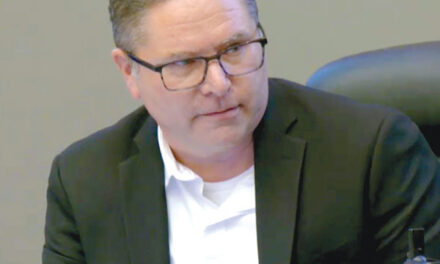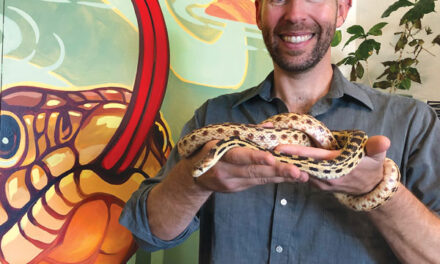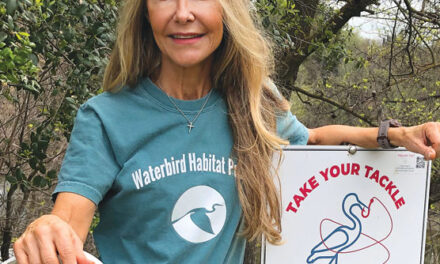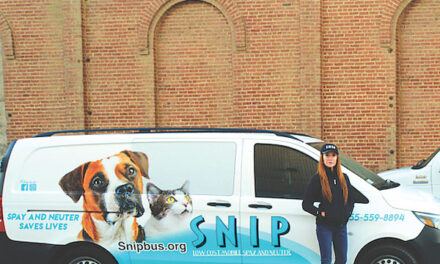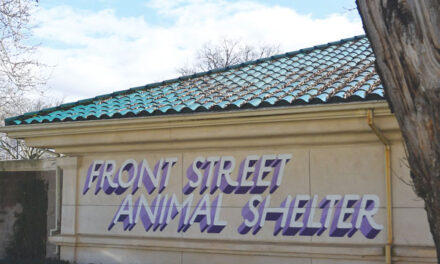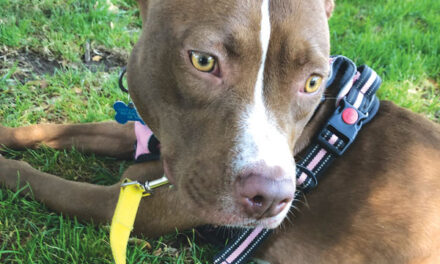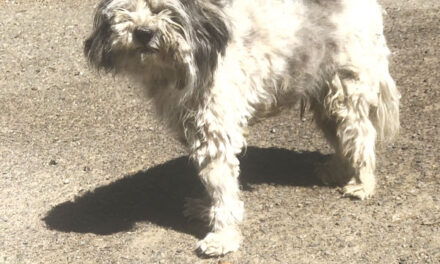Thousands of wildfires raged across California last year, burning millions of acres, destroying buildings and taking lives—the majority being wild and farm animals with no means of escape.
In mid-August, the UC Davis School of Veterinary Medicine deployed its Veterinary Emergency Response Team to the LNU Lightning Complex fire in Solano and Sonoma counties, and the North Complex and Bear fires in Butte County.
The team’s mission was to care for injured animals in evacuation centers and animal shelters—and to rescue those still trapped on scorched ranches, farms and in backyards.
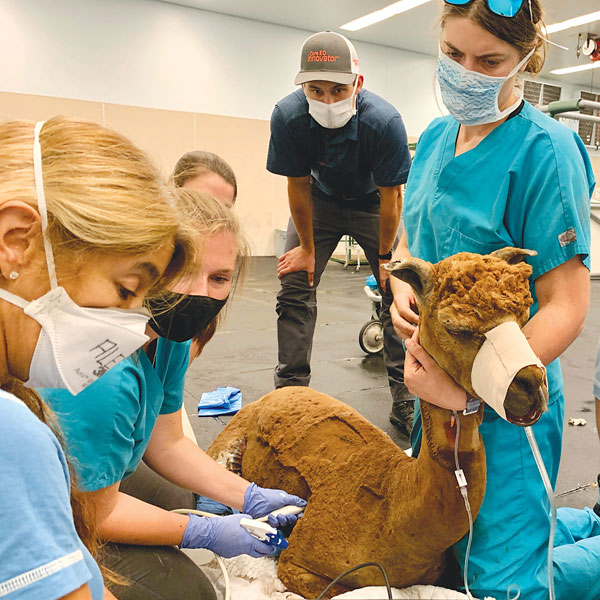
In the 48 days of deployment, the field team evaluated, triaged and treated more than 2,200 animals, including horses, goats, cattle, pigs, chickens, emus, sheep, alpacas, llamas, donkeys, dogs, cats, geese, ducks, guinea fowl and fish. More than 100 animals with serious injuries—primarily severe burns and smoke inhalation—were transferred to UC Davis Veterinary Medical Teaching Hospital for critical care.
“It was striking to see the destruction,” says VERT coordinator Dr. Lais Costa, who joined the UCD School of Veterinary Medicine in 2016 and began working with the disaster team in 2018. “The first few days there was smoke in the air and just the destruction. Then you saw the animals that were burnt. It was really bad.”
Only a handful of cases were euthanized in the field, Costa says. “Those were put to sleep because of the hopeless severity of their condition. Any animal that we thought had even a slim chance of survival, we brought to the hospital.”
Working with animal control officers, the UCD team went behind the fire lines before property owners were allowed back in. Sometimes it took days to find animals hunkered down out of fear, stress or pain. The team put out food and water and returned the next day.
“If they ate and drank, we knew somebody was there,” Costa says. So the team kept going back until the animal was found. “That’s what kept us going—the satisfaction when we found somebody.”
One rescue story stands out. “It was a smoky first day at the Bear Fire deployment,” Costa recalls. “We drove to yet another property that had been completely destroyed by the fire. All structures were burned to the ground and the land had been badly scorched. We started to look for signs of life. In our search we found this bird enclosure. Seventeen dead birds.
“After searching the property thoroughly, we finally found two live ducks. Their feet were badly burned and their feathers were badly singed. We will never know how they survived the fire.”
The ducks were dehydrated, hungry and in pain. They had lost the webbing in their feet. The birds were taken to the Livestock Emergency Shelter in Oroville, where Dr. Michelle Hawkins, who led UCD’s Avian Strike Team, evaluated the ducks, bandaged their feet, and gave them antibiotics and pain medication.
The next day, the ducks were still in distress and transferred to the UCD veterinary hospital where they remained for two weeks. “Soon,” Costa says, “they got back their noisy and rambunctious personalities. The ducks made an amazing recovery from their injuries.”
Despite the devastation and enormous death toll, the team focused on the animals they could save. “We put so much energy and hope into the ones we did find,” Costa says. “We just had a drive that got us to surpass the draining feeling of finding all the dead animals.”
Costa commends the contributions of UCD’s new Wildlife Disaster Network. Partnering with the California Department of Fish and Wildlife, the network cared for many of the wild animals, such as a mountain lion with burn injuries, affected by the fires.
“The compassion and hard work that the disaster service workers shared was heartwarming,” Costa says. “Working with all the organizations to a common goal of caring for the animals and supporting the community, bringing them hope by saving their animals, was the best reward anyone could wish for.”
To donate to the Veterinary Emergency Response Team, visit vetmed.ucdavis.edu/2020-inu-fire-updates. To donate to the Wildlife Disaster Network, visit vetmed.ucdavis.edu/news/wildlife-disaster-network.
Cathryn Rakich can be reached at crakich@surewest.net. Follow us on Facebook, Twitter and Instagram: @insidesacramento.



